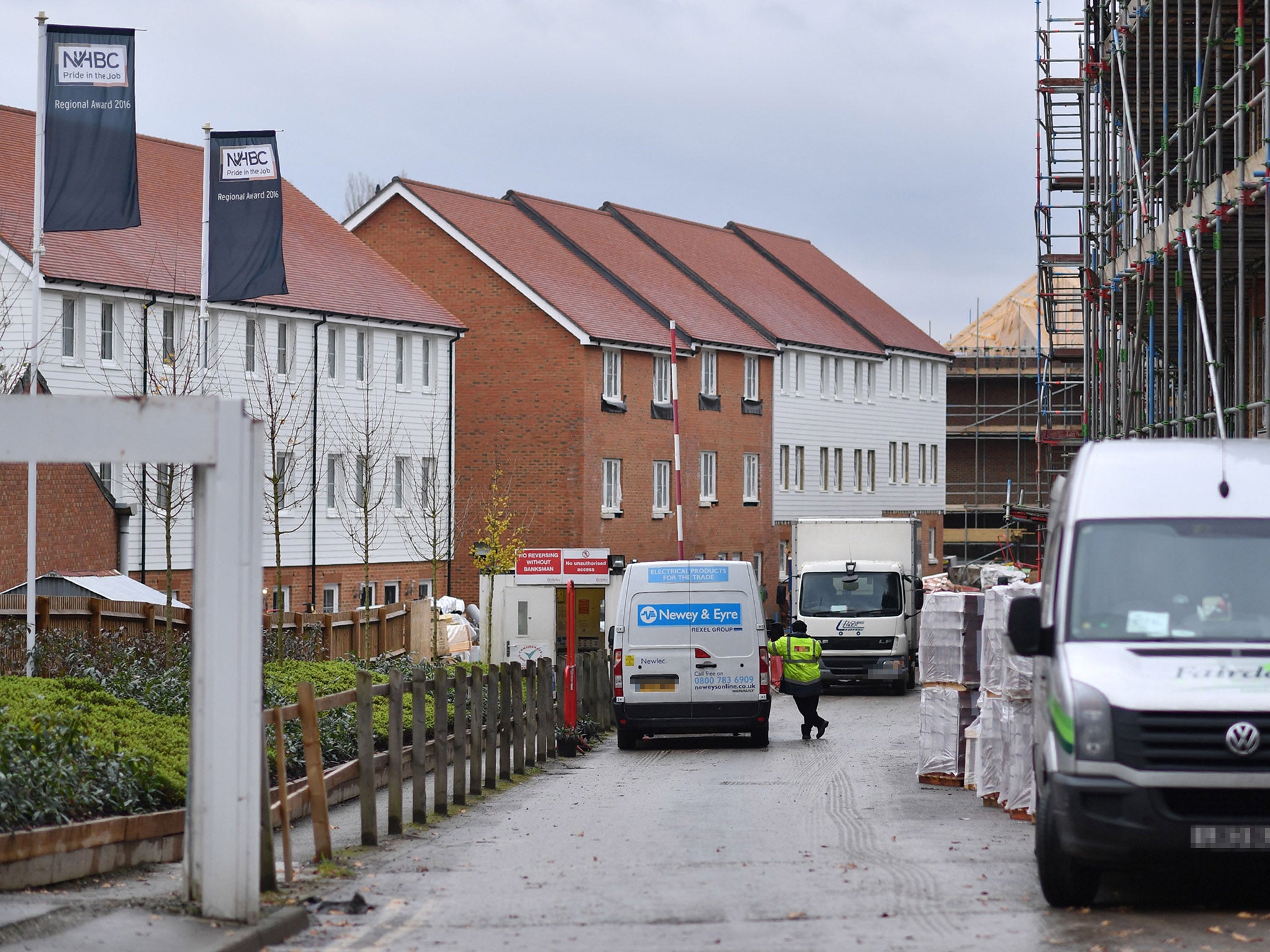Foreign nationals should be banned from buying more than half of houses in new developments, says Tory MP
Chris Philp publishes report calling for tougher controls to support British first-time buyers

Your support helps us to tell the story
From reproductive rights to climate change to Big Tech, The Independent is on the ground when the story is developing. Whether it's investigating the financials of Elon Musk's pro-Trump PAC or producing our latest documentary, 'The A Word', which shines a light on the American women fighting for reproductive rights, we know how important it is to parse out the facts from the messaging.
At such a critical moment in US history, we need reporters on the ground. Your donation allows us to keep sending journalists to speak to both sides of the story.
The Independent is trusted by Americans across the entire political spectrum. And unlike many other quality news outlets, we choose not to lock Americans out of our reporting and analysis with paywalls. We believe quality journalism should be available to everyone, paid for by those who can afford it.
Your support makes all the difference.Foreign nationals should be barred from buying more than 50 per cent of houses or flats in new developments of more than 20 properties, a Conservative MP has proposed.
The 50 per cent limit is one of a series of changes put forward in a report by Croydon South MP Chris Philp to boost housebuilding towards the Government’s target of 300,000 homes a year and ensure that more new homes end up with first-time buyers.
In his report, published by the Centre for Policy Studies think tank, Mr Philp highlighted a development in Baltimore Wharf, in London’s Docklands, where 87 per cent of 2,999 apartments were sold abroad, as well as another in Manchester where 94 per cent of 230 flats went to non-UK residents, more than half of them to a company based in the British Virgin Islands.
Mr Philp said overseas buyers were taking up around 50 per cent of all new-build stock in London, including cheap flats in the suburbs. But he warned it was “a much larger issue than people imagine”, and was no longer confined to prime areas of the capital.
Non-UK resident purchasers of flats tend to be predominantly from China, Hong Kong, Singapore, India, Malaysia and some Gulf states, buying “off-plan” two or three years before the properties are even built and often before potential British purchasers have had a chance to look at the scheme, he said.
“By snapping up new-build stock off-plan – including cheaper flats that are ideal for first time buyers – non-UK buyers are preventing young Britons from getting onto the housing ladder,” wrote Mr Philp.
Arguments that the Government should not intervene in the free market for property “do not hold water”, said the MP.
“First, housing is far from a free market,” he said. “The mere existence of the planning system means that the state plays a significant role in shaping its outcomes.
“Second, land is not like other goods. You can always make more iPhones. You cannot create more land – especially not urban land in London and the South East that is suitable for development.
“Third, home ownership is so economically and socially advantageous – and so overwhelmingly popular – there is an imperative for Government to do all it can to support it.”
Mr Philp called on the Government to follow countries like Australia, Singapore, Switzerland, Denmark and New Zealand which have introduced measures to limit or ban non-resident foreign buyers from purchasing property.
His report, entitled Homes For Everyone, also proposed:
- The removal of the affordable housing requirement for developments under 20 units;
- The creation of “Pink Zones” where development will be automatically approved within certain parameters;
- The promotion of “staircasing” agreements by which renters can gradually buy their homes over a period of years at the initial price.
Some 217,350 new homes were added to the housing stock in 2016-17, the highest total since 2007-08. But the report found that the gap between the number of homes needed and the number being built remains at 76,000 a year.
Over a 25-year period, a home owner will end up between £100,000 and £300,000 richer than a renter, the report stated.
Mr Philp said: “We need to place home ownership at the front of the policy agenda and make sure that first-time buyers get all the support possible to get onto the housing ladder.”
PA
Join our commenting forum
Join thought-provoking conversations, follow other Independent readers and see their replies
Comments